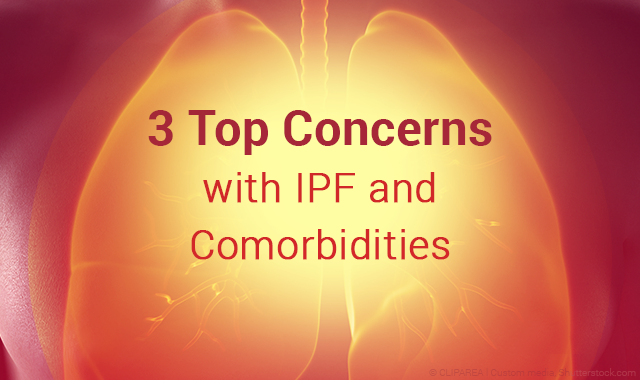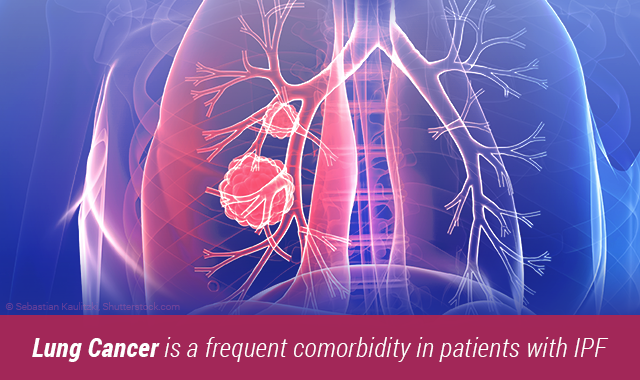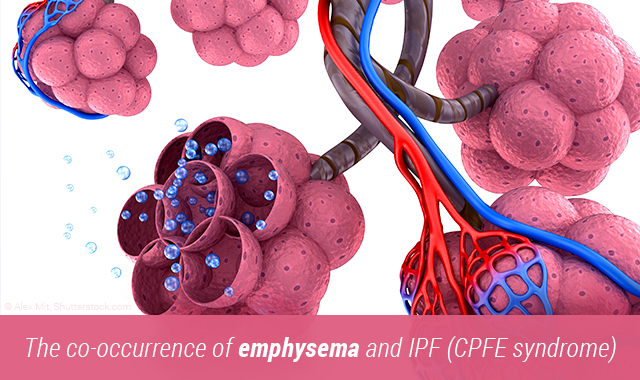- Safety & Recalls
- Regulatory Updates
- Drug Coverage
- COPD
- Cardiovascular
- Obstetrics-Gynecology & Women's Health
- Ophthalmology
- Clinical Pharmacology
- Pediatrics
- Urology
- Pharmacy
- Idiopathic Pulmonary Fibrosis
- Diabetes and Endocrinology
- Allergy, Immunology, and ENT
- Musculoskeletal/Rheumatology
- Respiratory
- Psychiatry and Behavioral Health
- Dermatology
- Oncology
3 top concerns with IPF and comorbidities [SLIDESHOW]
Here are 3 major concerns patients with IPF should be aware of, according to research from Carlo Vancheri that appeared in a recent issue of Sarcoidosis Vasculitis and Diffuse Lung Diseases.


Patients with IPF should be carefully assessed for comorbidities, the most significant of which are cardiovascular disease (CVD) and lung cancer.
“Both these comorbidities are associated with a significantly worse prognosis and are difficult to treat, with few established therapeutic options,” wrote Carlo Vancheri, professor with the Regional Centre for Rare Pulmonary Diseases, Department of Clinical and Experimental Medicine at the University of Catania, Italy, in a recent issue of Sarcoidosis Vasculitis and Diffuse Lung Diseases.
Related:Physicians unsure about new IPF drugs
Here are the major findings on IPF and comorbidities from Vancheri and his colleagues in Germany, France and Denmark:



CVD is the most frequent comorbidity in patients with IPF.
In a Danish cohort study, CVD, arterial hypertension, ischemic heart disease, and pulmonary hypertension were present in 20%, 15%, 13%, and 10% of IPF patients, respectively. Significantly, patients who developed CVD during follow-up were at increased risk of mortality compared with those who did not develop this comorbidity.
Related:Researchers discover IPF biomarkers
In a case control-study, IPF patients were nearly 5 times more likely than the general population controls to have a prothrombotic state. As a result, healthcare professionals might assume that the anticoagulant warfarin should be prescribed for these patients. “Yet, surprisingly, a trial of warfarin in IPF patients who lacked other indications for anticoagulation found that treatment did not reduce all-cause mortality or hospitalization compared with placebo. Conversely, warfarin was actually associated with an increased risk of mortality in this population,” Vancheri wrote.



Lung cancer is a frequent comorbidity in patients with IPF, with estimates ranging from 5% to 20%, depending on the duration of studies.
The role of chemotherapy in IPF is controversial. A paclitaxel/carboplatin regimen has been evaluated in patients with idiopathic interstitial pneumonias (IIP) and advanced non-small-cell lung cancer and found to be as effective and well tolerated as in patients without idiopathic interstitial pneumonia. However, another study reported an acute exacerbation rate of 30%, together with a high rate of grade 5 pulmonary toxicity. And acute exacerbations of IPF have also been reported following radiotherapy for lung cancer.
Related:IPF patients struggle with quality-of-life issues
“In the absence of effective and safe treatment options, the management of patients with IPF and lung cancer should comprise annual HRCT imaging; advice on reducing risk factors (e.g., smoking); regular evaluation of lung function and performance status; and accurate cancer staging. Treatment of lung cancer may be considered in a small group of patients – typically those with less advanced cancer and less advanced IPF, in whom surgery or radiotherapy may be helpful,” Vancheri wrote.


The co-occurrence of emphysema and IPF is believed by some to be a distinct entity that represents a clinical syndrome, termed the combined pulmonary fibrosis and emphysema (CPFE) syndrome.
This view is challenged by others, who argue that comorbid emphysema and IPF simply represent the co-occurrence of 2 separate diseases, according to Vancheri. Still, the risk of pulmonary hypertension is around 6 times higher in patients with comorbid emphysema and IPF versus IPF alone.
Related:Top 3 additions to IPF treatment guidelines
However, the researchers found, it has not been demonstrated that emphysema impacts survival in IPF. In one study with adjustment for the severity of fibrosis at imaging, there was no significant difference in survival between IPF patients with or without emphysema.
